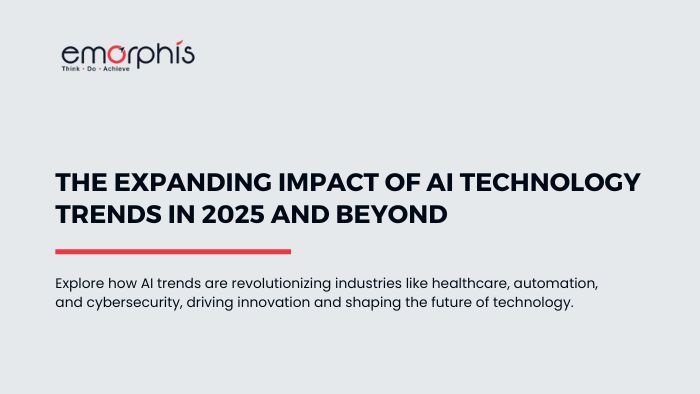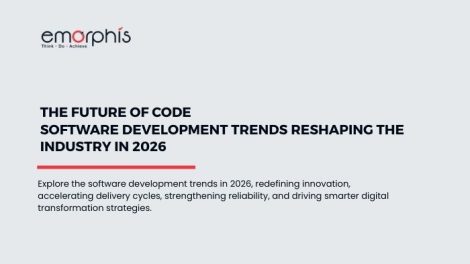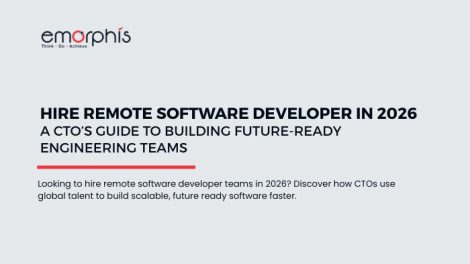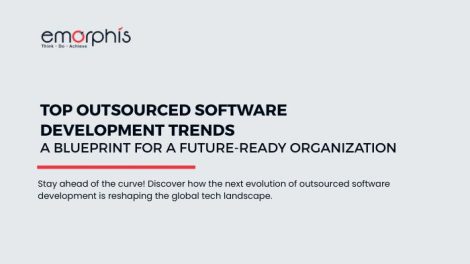Artificial intelligence (AI) is not just a buzzword; it’s an evolving powerhouse that continues to reshape industries and lives. From healthcare to finance, education, manufacturing, and beyond, AI technology trends are creating ripples of transformation. Let’s explore some key AI technology trends that are currently impacting global industries and their anticipated future influence.

1. Generative AI: Powering Creativity and Problem-Solving
Generative AI models like OpenAI’s GPT-4 (and successors) and DALL·E have made significant strides in natural language processing and image generation. These models are not only useful in creating content but also in solving complex problems. Companies now use generative AI to automate design, draft creative pieces, generate code, and even develop entire digital ecosystems autonomously.
Generative AI is likely to impact content creation and creative industries in unprecedented ways. Expect industries such as film, marketing, and gaming to leverage AI-generated ideas, scripts, and visuals, enabling faster production cycles while reducing costs. Additionally, business operations could see a rise in AI-generated marketing strategies and customer support content.
2. AI in Healthcare: A Leap Toward Precision Medicine
AI in healthcare is perhaps one of the most exciting and life-changing trends. With the use of machine learning models for early disease detection, personalized treatment plans, and drug discovery, the healthcare industry is undergoing a significant transformation. AI-driven systems can analyze massive datasets, including genetic data, medical records, and diagnostic images, far quicker and with more precision than human physicians.
AI’s impact on healthcare includes predictive analytics, which is crucial for anticipating disease outbreaks and patient health deterioration. Future applications may focus heavily on enhancing precision medicine, tailoring treatment to an individual’s genetic profile and health data. AI’s role in diagnostics, especially in the areas of cancer and chronic disease, continues to grow, giving doctors tools to detect conditions in earlier stages.
3. Natural Language Processing (NLP) in Everyday Interactions
NLP is redefining how we interact with machines. AI chatbots, like OpenAI’s models, and voice assistants (e.g., Amazon’s Alexa, Google Assistant) are becoming part of our daily lives. NLP has improved significantly in understanding context, sentiment, and generating more human-like responses. From smart home assistants to automated customer support, NLP’s impact on how we interact with technology cannot be overstated.
The future of NLP is brighter with trends moving towards emotionally aware AI. Systems will not only understand and respond to queries but will also detect emotional cues, making human-AI interaction more intuitive. This could revolutionize sectors such as mental health therapy and education, where empathetic, AI-driven interfaces guide users.
4. AI in Automation: Reshaping the Workforce
AI Automation has already replaced repetitive tasks in industries like manufacturing, logistics, and customer service. Robotic process automation (RPA), combined with AI, has allowed companies to streamline processes with fewer human errors and greater efficiency. AI-driven systems can now handle everything from managing supply chains to conducting financial transactions.
In the coming years, we’ll likely see a major shift where AI automation expands to more complex tasks, including legal work, software development, and even creative roles. This brings up the issue of workforce displacement, a concern that industries will need to address through reskilling and upskilling initiatives. New job roles such as AI ethics consultants, AI system managers, and automation supervisors may emerge to balance the human-AI ecosystem.
5. AI and Cybersecurity: A Double-Edged Sword
Cybersecurity is an area where AI is both a defender and a potential threat. AI-driven systems are being used to detect, mitigate, and respond to cyber threats faster than traditional methods. Machine learning algorithms can identify unusual patterns in network traffic and flag potential attacks in real-time. However, AI is also being weaponized by cybercriminals, who use it to launch more sophisticated attacks, such as deepfake scams and AI-driven phishing attempts.
The future of AI in cybersecurity involves smarter systems that not only detect threats but anticipate them. Predictive AI models will likely become an essential tool in the battle against cybercrime. However, this arms race between security experts and attackers highlights the need for constant innovation in cybersecurity technologies.
6. AI in Education: Personalized Learning Paths
In education, AI is changing how students learn by offering personalized education plans. AI algorithms can analyze a student’s strengths and weaknesses and create customized learning experiences tailored to their unique needs. Intelligent tutoring systems (ITS) are becoming more popular, adapting in real-time to students’ progress and helping them improve in weak areas.
Future trends point towards AI-driven learning platforms that will evolve into virtual mentors. These platforms may guide students through complex subjects and provide them with immediate, individualized feedback. Education systems worldwide are expected to integrate more AI to optimize learning outcomes for students of all ages, potentially making higher-quality education more accessible.
As AI becomes more ingrained in daily life, discussions around ethical AI are intensifying. Bias in AI algorithms, data privacy issues, and the moral implications of AI-driven decision-making have raised questions about transparency and accountability. Governments and companies are increasingly focusing on establishing ethical guidelines for AI deployment.
The future trend is toward developing more explainable AI systems—those where decisions made by algorithms can be easily understood and audited by humans. This will be critical in sectors such as healthcare, finance, and law, where AI decisions have far-reaching consequences. Moreover, AI ethics committees will likely become a staple in organizations that heavily depend on AI.
8. AI and Sustainability: A Greener Future
AI technology is also paving the way for sustainability efforts across industries. From optimizing energy use in smart cities to monitoring and managing agricultural resources, AI is helping to address global environmental challenges. Machine learning models are being used to predict weather patterns, monitor deforestation, and manage renewable energy grids.
As the world faces a growing climate crisis, the application of AI in sustainability efforts is expected to expand. AI models could optimize entire industries to reduce carbon emissions, create sustainable supply chains, and develop new green technologies. Expect AI to become a pivotal player in the fight against climate change, pushing industries toward greener practices.
Find the details of AI Software Development
Conclusion: A Future Dominated by AI Innovation
AI technology trends are advancing at a breakneck pace, leaving no industry untouched. As AI continues to evolve, its impact on the global economy, workforce, and personal lives will only increase. The coming years will see AI becoming an even more critical part of business strategy, social systems, and creative processes. However, with great power comes great responsibility, and the onus will be on policymakers, technologists, and society as a whole to ensure that AI is used ethically and for the greater good.

As we move into 2025 and beyond, embracing AI technology trends with thoughtful consideration and foresight will ensure that its transformative power benefits humanity, while mitigating the risks.







